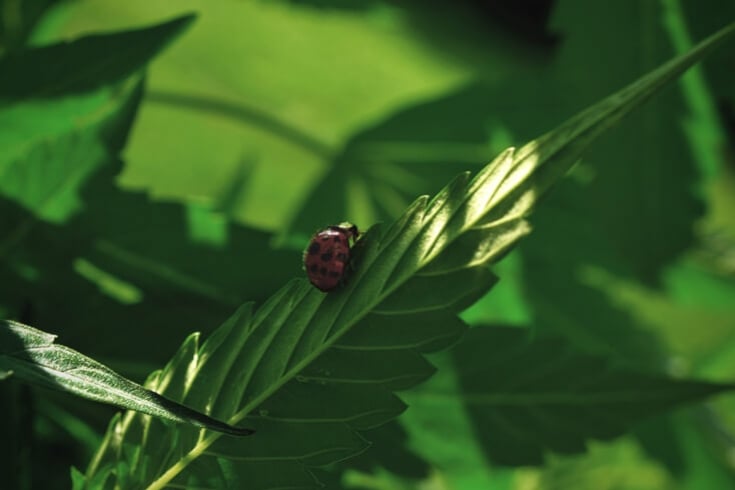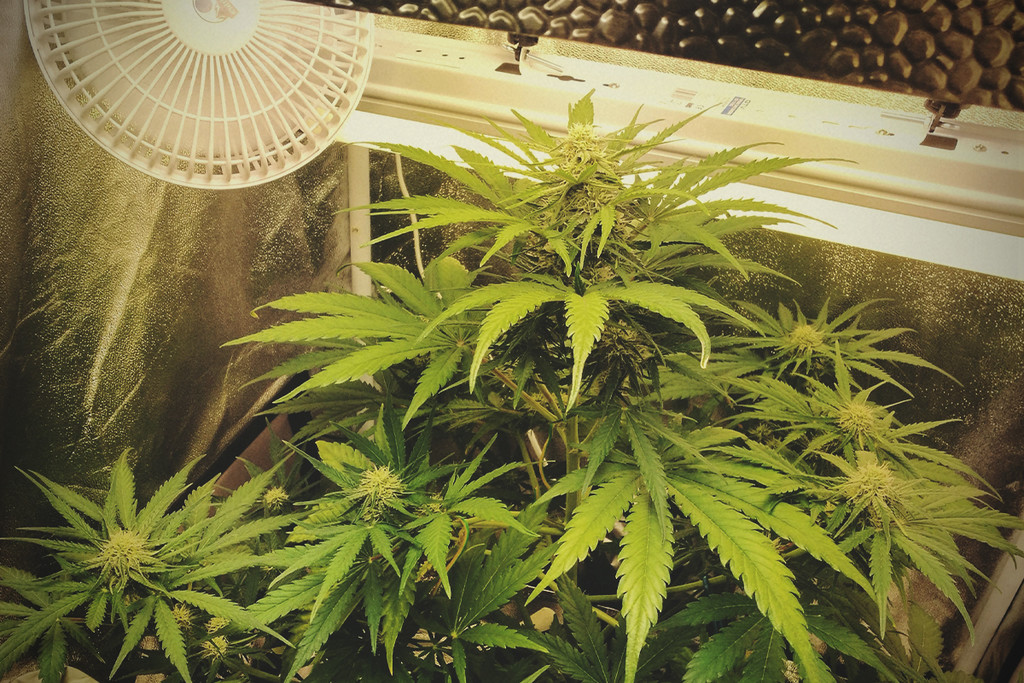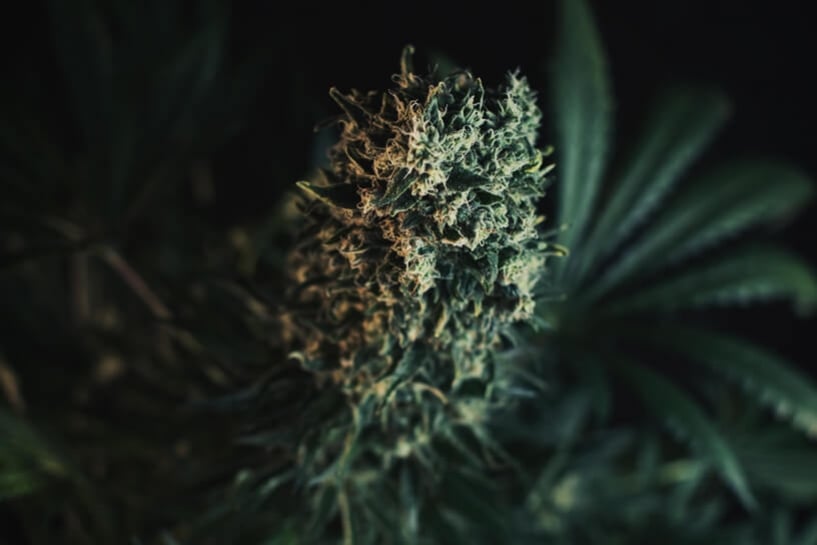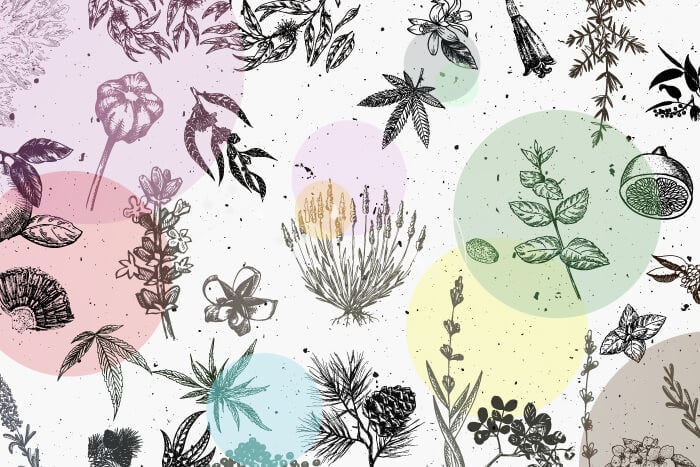.
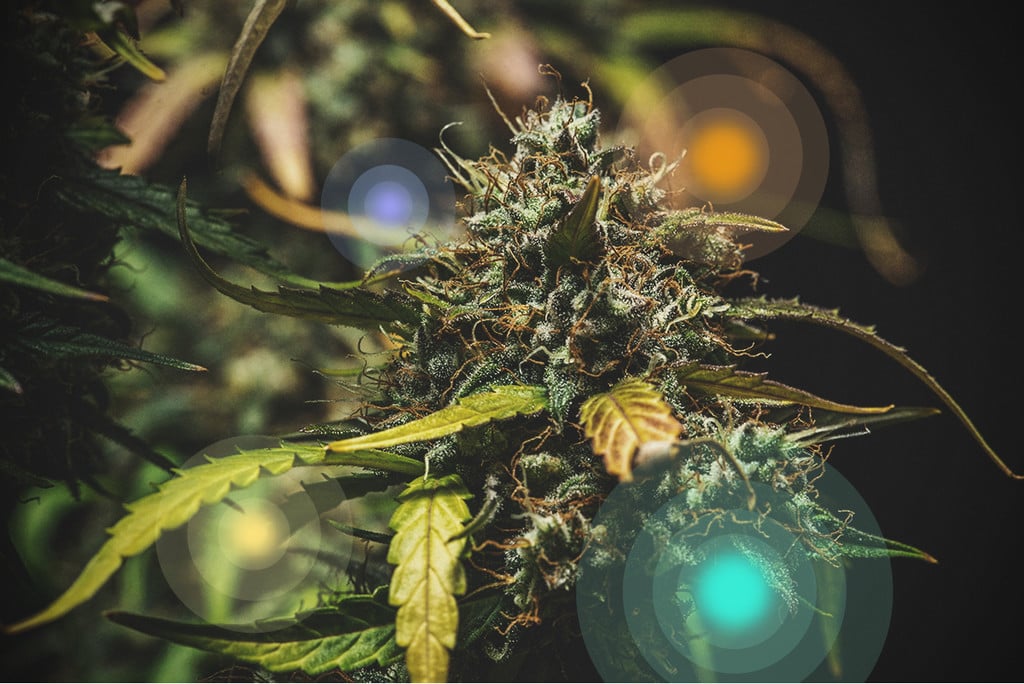
Why Does Marijuana Make THC and Other Chemicals?
Cannabis produces over 100 cannabinoids and more than 150 terpenes. But why do weed plants spend so much of their resources making these molecules? Well, they use them as weapons of self-defence, and even as a means of communication. Take a deep dive into the world of cannabis phytochemistry to find out why these chemicals are so vital.
Contents:
What do you know about cannabinoids and terpenes? You most likely associate them with the effects, tastes, and smells of marijuana. But plants were churning out these molecules long before humanity’s obsession with weed began, using them to protect themselves against pests, defend against disease, and even to communicate with each other.
Plants exist as autonomous entities in nature, and they value their own survival over pleasing us with their tastes, smells, and effects. While we value cannabinoids and terpenes for these purposes, plants create them in order to turn other life forms off.
These molecules work as defence mechanisms against all kinds of stress, including grazing herbivores, nibbling insects, pathogens, and even sunlight.
Have you ever taken a closer look at a cannabis flower? If so, you probably noticed those small, sparkling structures. These frosty shapes are known as trichomes—glands tasked with biosynthesising terpenes and cannabinoids, churning them out in the form of a viscous resin. This gooey layer—the same substance that sticks to your fingers after handling buds—serves as a protective shield against the threats mentioned above.
Below, you’ll discover the biggest challenges that cannabis plants face in the wild and in man-made cultivation spaces, and how cannabinoids and terpenes help them to defy the odds and survive.
Plant Stress Stimulates Cannabinoid and Terpene Production
What do you see when you look at a cannabis plant? They seem quite content, don’t they? You probably wouldn’t complain if you got to spend most of your days sitting in the sun, doing little more than chilling out. However, things aren’t that easy for our botanical buddies. Cannabis plants encounter different kinds of stress on a daily basis. Thankfully, their ability to churn out cannabinoids and terpenes helps them deal with environmental challenges.
Both of these groups of phytochemicals autumn under the umbrella of secondary metabolites. These molecules aren’t directly involved in the growth, development, and reproduction of plants like primary metabolites, but they do help them deal with key stressors.
Find out about the two types of stress that cannabis plants face below.
-
Biotic Stress
Plants are exposed to biotic stress at the hands of other living organisms. To remember this, simply keep in mind that “bio” means “of life”. The main types of biotic stress that cannabis plants face include:
- Pest insects such as aphids, whiteflies, fungus gnats, and caterpillars
- Bacterial, fungal, and viral pathogens such as Fusarium, powdery mildew, and hops latent viroid
- Large mammals
- Nematodes
- Other plants
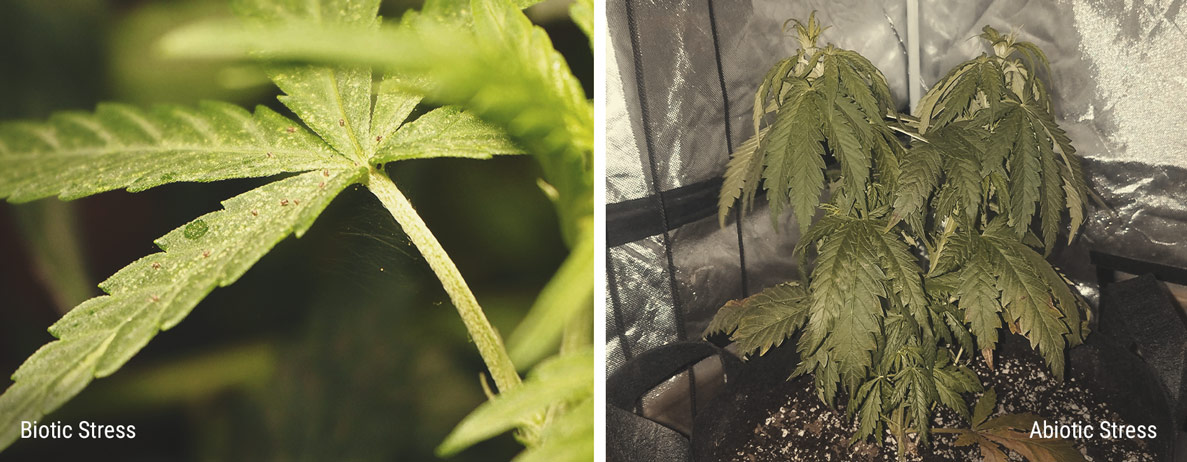
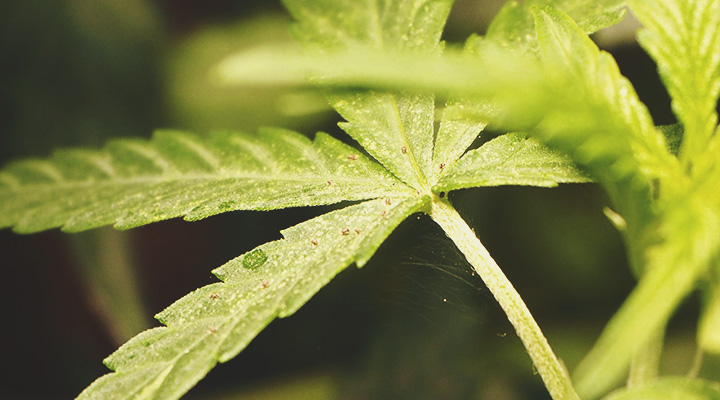
-
Abiotic Stress
In contrast, abiotic stress refers to the stress imposed on cannabis plants from non-living sources. Examples of abiotic stress are either physical or chemical, and include:
- Drought (water stress)
- Excess watering
- Temperature (cold and heat)
- Mineral toxicity
- UV radiation
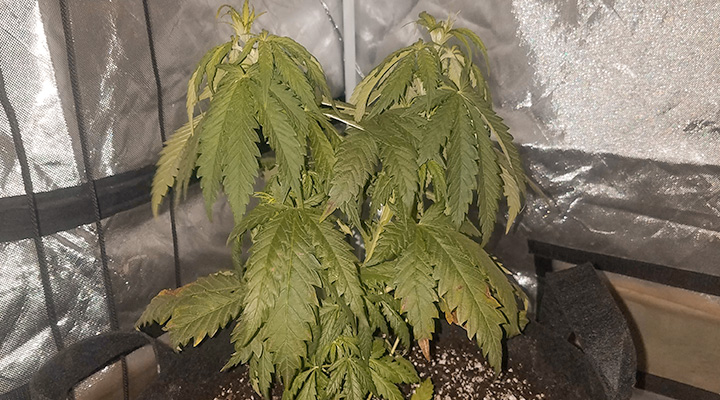
Biochemical Warfare
Every time you’ve sat on your couch and fired up a joint, you probably weren’t aware that you were inhaling a biochemical warfare agent. Indeed, cannabis plants invest precious resources into manufacturing these chemicals to protect them from pest insects.
Some pest infestations only leave a couple of holes, and human stewards often step in to deal with the problem. However, left unchecked, some insect species make fast work of entire cannabis plants. To prevent this from happening, plants deploy terpenes and cannabinoids to drive off the culprits.
If you’ve ever opened a bottle of essential oils and taken a whiff, you’ll know just how potent terpenes are. Now, imagine scaling this down to the level of an insect. Pungent terpenes work as a feeding deterrent, putting some species off chowing down altogether. But that’s not all. When under attack, plants also emit terpenes as signals to attract carnivorous insects[1] that prey on the herbivores inflicting the damage.
But terpenes don’t take all the credit when it comes to insect defence. Some cannabinoids also lend themselves to protecting cannabis plants from attack. CBD exhibits insecticidal properties[2], and THC produces a toxic effect[3] against some insects.
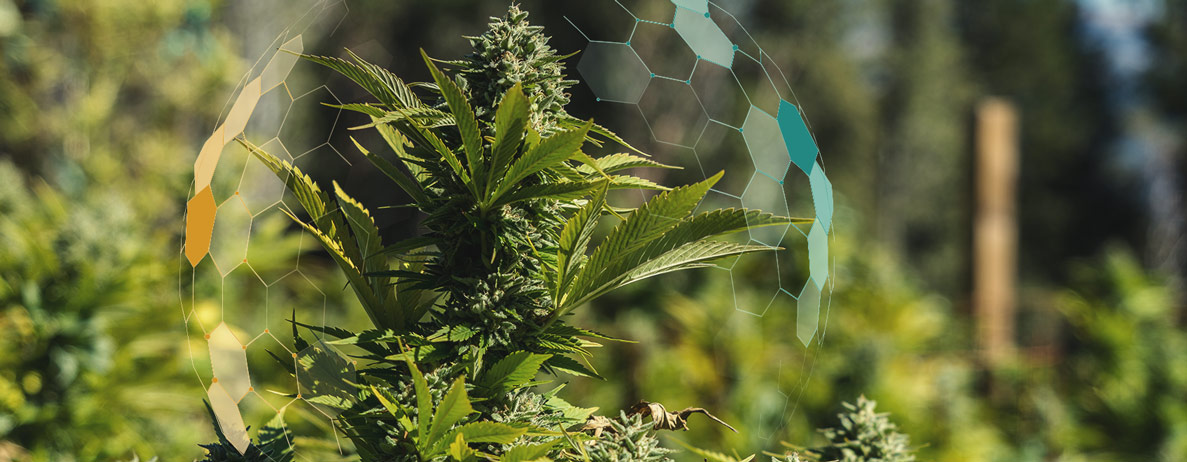
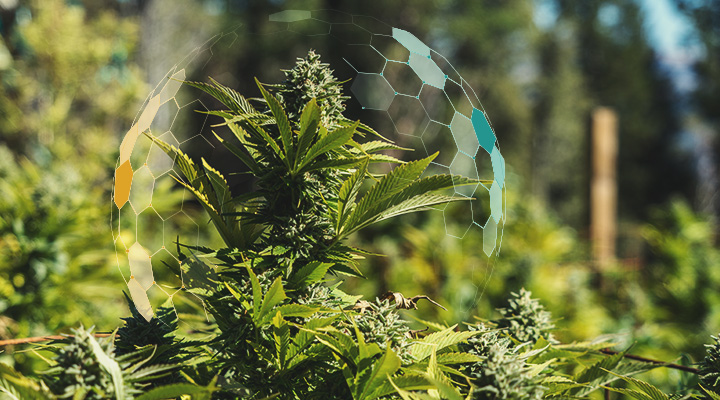
Protection Against Pathogens
Just like us, cannabis plants get ill when exposed to certain bacteria and viruses, and, just like us, they muster an immune-like response that helps them battle pesky microbes. When pathogens manage to gain a foothold, plants produce more terpenes to increase the chances of survival. Terpenes work as either general or specialised pathogen inhibitors, thanks to their antiviral, antibacterial, and antifungal qualities.
But plants aren’t always successful in this ongoing war. Viruses are dynamic pathogens, and they’re in a constant battle of supremacy against their plant rivals. For example, some plant viruses are able to suppress terpene production.
They Ward Off Herbivores
Insects aren’t the only life forms with a penchant for cannabis. Several mammalian species also like to chomp on cannabis leaves. But cannabis plants don’t just sit helplessly there waiting for these foragers to get full. In fact, they quickly become aware that they’re being chewed, detecting the leaf vibration[4] produced by this lethal snacking and responding accordingly. In an attempt to ward off attackers, plants ramp up terpene production to make themselves less palatable.
-
Natural Sunscreen
Outdoor cannabis plants depend on the sun to survive. However, the sun has a dark side. The rays emitted by this giant ball of gas comprise several different kinds of radiation, including UVA and UVB. You’ll know firsthand how harmful these wavelengths are if you’ve ever spent too long lounging around on the beach. Now imagine being a cannabis plant, sat out in a warm climate all day with absolutely no shelter. How do they handle it?
Well, it turns out they make their own sunscreen. In response to the abiotic stress of UV radiation, cannabis plants churn out higher quantities of secondary metabolites[5]. Not only does this protect them from harmful radiation, but the increase in defensive chemicals may give them an advantage against pathogens and herbivores.
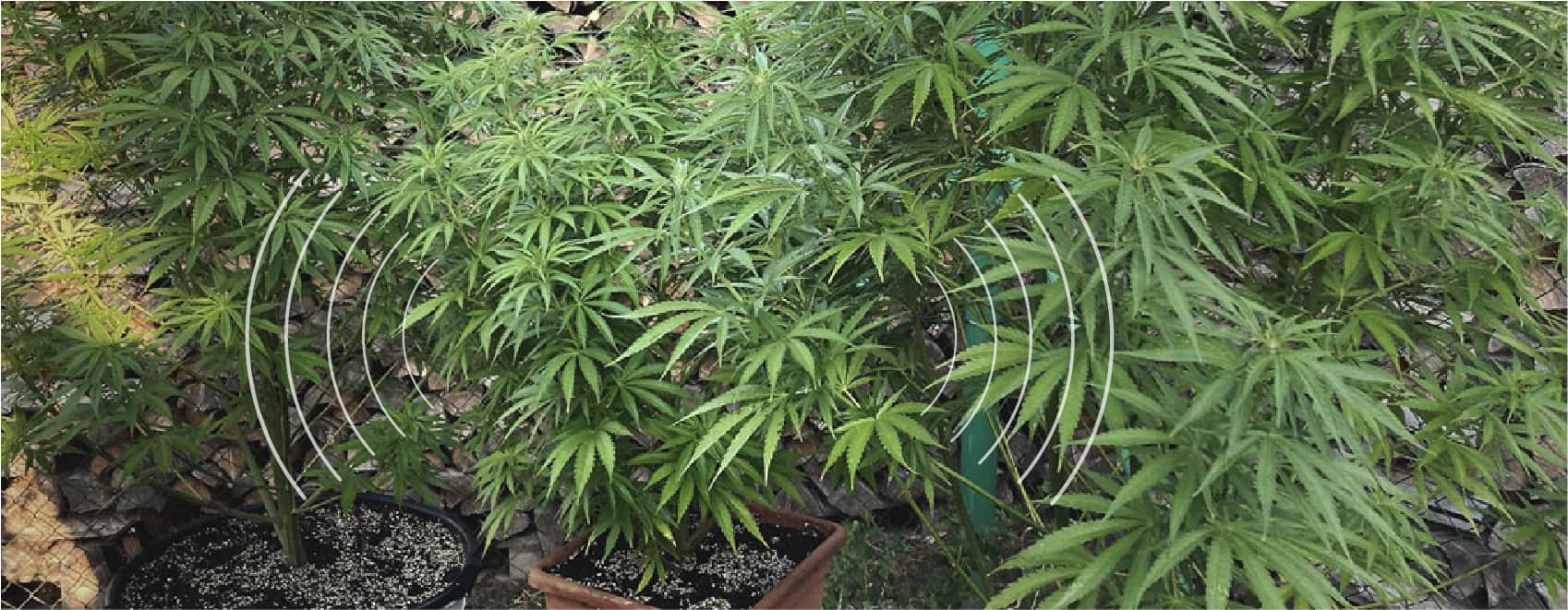
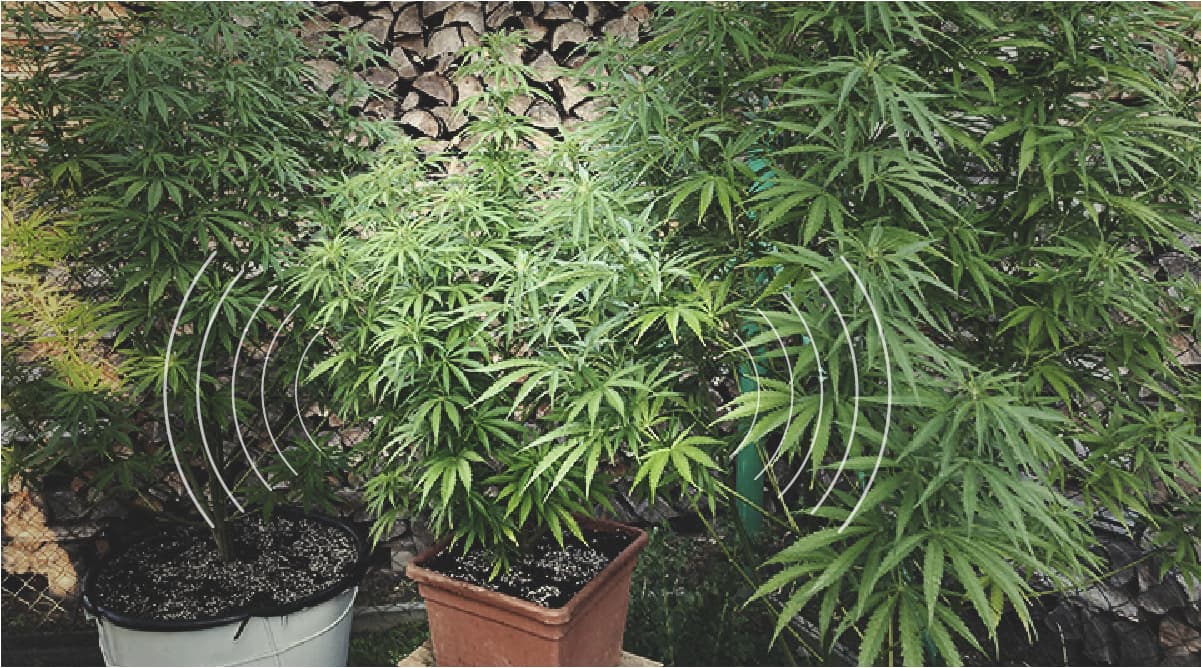
Plant Communication
So, plants know when they’re being eaten; they’re aware of when they’re getting too much sun. But it doesn’t stop there. Plants also use terpenes to communicate with each other[6]—we’re not kidding. Upon being eaten, attacked, or infected, plants emit terpenes to alert their neighbours.
Airborne terpenes cause a reaction in receiver cells, and plants muster a chemical defence downstream to protect themselves from potential danger.
But plants don’t just use terpenes to communicate with other organisms above the ground. They also use these molecules as a chemical language[7] to interface with a host of living organisms in the soil, including bacteria, fungi, and insects. However, researchers are only just getting to grips with this fascinating new area of research.
Above ground, cannabis releases terpenes from glandular trichomes that are concentrated on the flowers. However, under the soil, they emit terpenes through their roots to communicate to other organisms and manipulate the status of the ecosystem within the rhizosphere (the slither of space around the root system).
For example, researchers have found that some plants release β-pinene and E-Caryophyllene through their roots to attract predatory nematodes to wipe out those that feast on roots. Some species also put out the molecule arabidin to control bacterial numbers in the rhizosphere; they’re able to selectively promote or inhibit different microbial species in their favour.
The science remains early here, but the huge economic engine that fuels horticultural research in the cannabis space will inevitably unlock these secrets. It won’t take long before we understand how cannabis leverages below-ground terpene release to influence relationships with symbiotic mycorrhizal fungi, bacteria, and disease-causing organisms.
How Humans Have Altered Cannabinoid and Terpene Levels
Wild cannabis plants, sometimes referred to as landraces, depend on their ability to produce terpenes and cannabinoids to deal with stress and survive. However, these specimens possess much lower levels than those bred in high-tech greenhouses. Through intensive selective breeding, humans have managed to produce cultivars that are genetically wired to pump out far higher levels of secondary metabolites to suit our desires for taste, smell, and psychoactive effects.
Cannabinoids and Terpenes Fulfil Vital Roles
There you have it. Cannabinoids and terpenes play key roles in nature. They help plants to deter insects and mammals, protect them against UV radiation, and even allow them to warn each other of approaching danger. Now, every time you take a hit of a joint or dig your teeth into an edible, you’ll be reminded of the incredible natural technology that allows you to partake in that experience.
- Herbivory-Induced Emission of Volatile Terpenes https://pubs.acs.org
- Contrasting Roles of Cannabidiol as an Insecticide and Rescuing Agent for Ethanol–induced Death in the Tobacco Hornworm Manduca sexta https://www.nature.com
- A review of Cannabis sativa-based insecticides, Miticides, and repellents https://www.researchgate.net
- Leaf vibrations produced by chewing provide a consistent acoustic target for plant recognition of herbivores https://link.springer.com
- UV-B Radiations and Secondary Metabolites https://www.researchgate.net
- Volatile terpenes – mediators of plant-to-plant communication https://onlinelibrary.wiley.com
- Plant terpenes that mediate below-ground interactions: prospects for bioengineering terpenoids for plant protection https://onlinelibrary.wiley.com


























